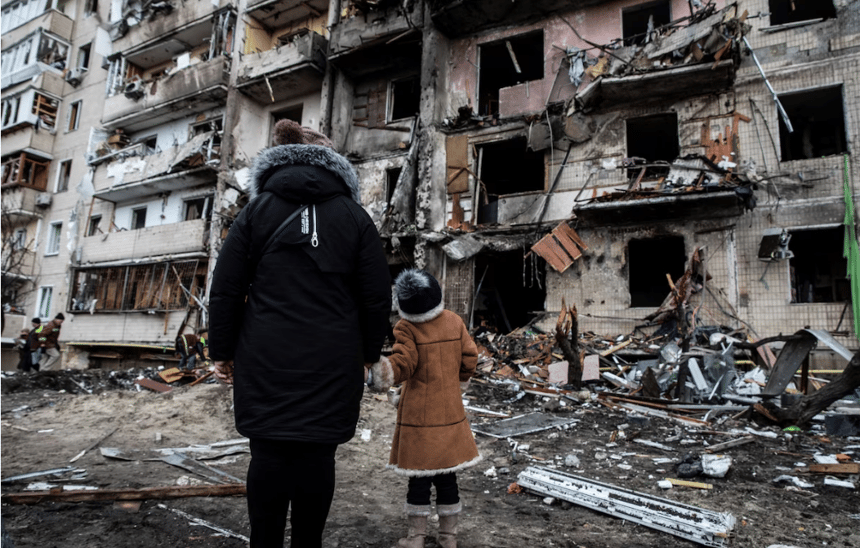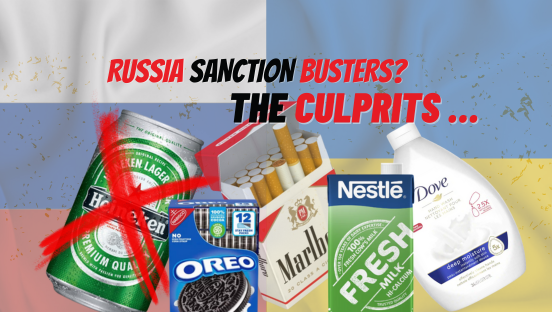
- Heineken, Unilever, Philip Morris International, and Mondelez break promises to leave Russia
- Sanctions for Russia after the outbreak of war in Ukraine
- Boycott applies to the export of a large number of products to Russia
Google Translated from Dutch to English. Here is the link to the original article in Dutch. The article was originally published on 8 August 2023.
"More than 1,000 major companies pledged to leave Russia after President Vladimir PUTIN launched his devastating war in Ukraine, but some well-known firms stand accused by researchers of violating their pledge.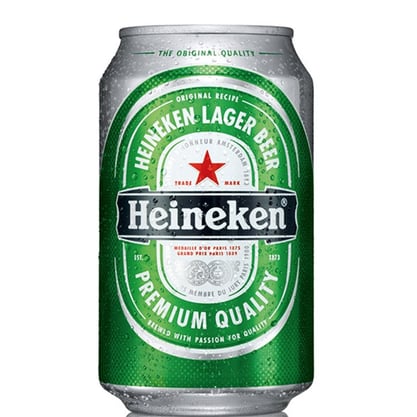
Not every company on the list left, but more than 1,000 exited. That unprecedented corporate exodus, championed and chronicled by Yale professor Jeff SONNENFELD, dealt a severe financial and symbolic blow to Moscow and the Russian economy.
Now, as Russia’s brutal war in Ukraine blows past the 500-day mark, Sonnenfeld and his team are naming and shaming a slew of companies they accuse of breaking their promises to leave or at least drastically scale back their presence in Russia, including well-known companies like Heineken, Unilever, Philip Morris International, and Oreo maker Mondelez."
-- CNN award-winning reporter, Matt EGAN.
Within this excerpt, the words take shape under the skilled pen of our very own Han DE JONG, who authored this insightful blog.
People look at a damaged residential building after a rocket attack in Kyiv on Feb. 25. (Heidi Levine for The Washington Post)
\
Following the outbreak of war in Ukraine, the EU and other countries have imposed a series of sanctions against Russia. A boycott applies to the export of a large number of products to Russia. However, it is known that this boycott is partly circumvented because part of the trade to Russia no longer takes place directly, but via a detour. So through other countries. I wondered how big this 'detour trade' would be and looked up the figures for the German export value to Russia and to countries through which exports to Russia probably now take place indirectly.
Since trade flows can fluctuate widely from month to month, I have included figures for 12-month periods in the charts below. The most recent observation is for June 2023 and the figures therefore represent the total value of German exports to the countries mentioned over the period July 2022 to June 2023. The scale of all these graphs is different because the trade flows are strongly differences. In contrast, the patterns are strikingly similar for most countries.
The value of German exports to Russia in the 12 months to June 2023 was €15.3 billion lower than the total export value in 2019. The total German export value to the other countries mentioned here was €4.7 billion higher than in 2019. Of that €4.7 billion extra, Kazakhstan accounts for almost half.
It is of course impossible to determine what part of the increased export value to the countries mentioned here consists of 'detour exports' to Russia, but the pictures suggest that this is a large part. The developments in Kyrgyzstan are particularly spectacular. In 2019, Germany exported only €56 million in total to that country. In the 12 months up to and including June 2023, that was €647 million. Armenia is also happily playing along. It sees the value of goods from Germany increase from €180 million in 2019 to €613 million in the 12 months to June 2023.
Turkmenistan and Tajikistan – in euros – hardly participate in the 'detour trade'. The total value of German exports to these countries is in any case limited, especially to Tajikistan.
What strikes me, by the way, is the big difference between 2014 and now. In February 2014, the Russians took over Crimea, and sanctions were already imposed on both sides. At the time, this led to a significant drop in German exports to Russia. That drop in euros is comparable to that since the outbreak of the war. Dutch exports to Russia also fell at the same time. I have always been told that 'detour trade' was already established via other countries at that time. However, this is not reflected in the German figures on trade with the other countries mentioned here for the period after February 2014.
I leave the drawing of conclusions to you. I just put the numbers together.
The source of all figures is Macrobond, which obtains the statistics from the German CBS, Destatis.
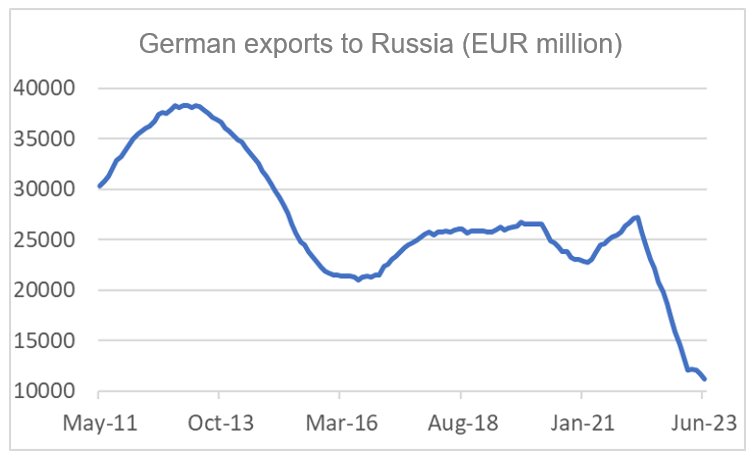
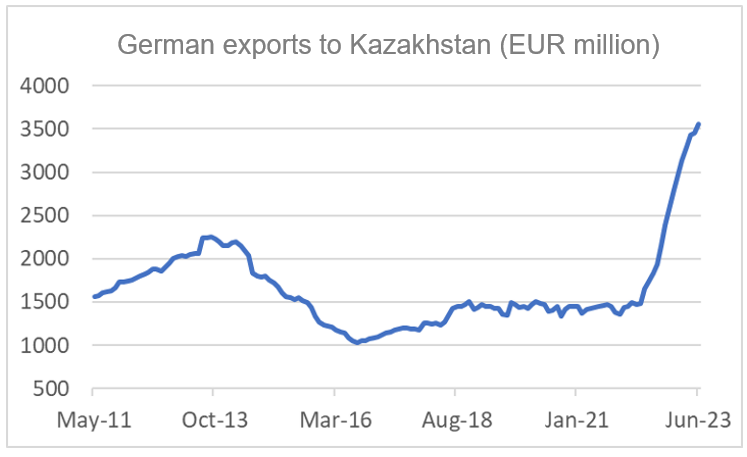
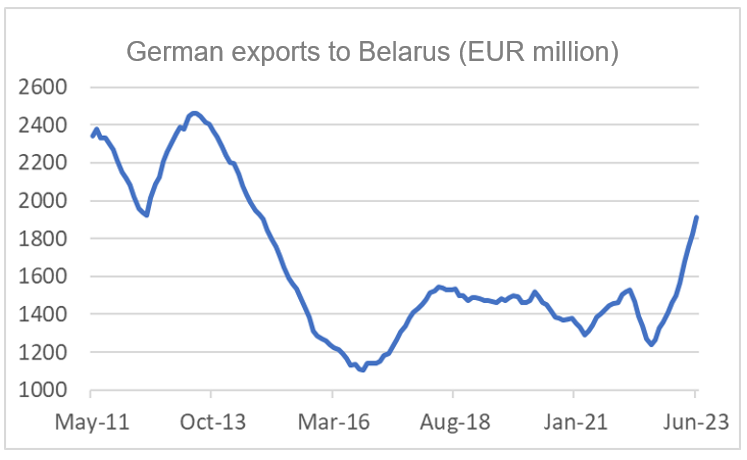
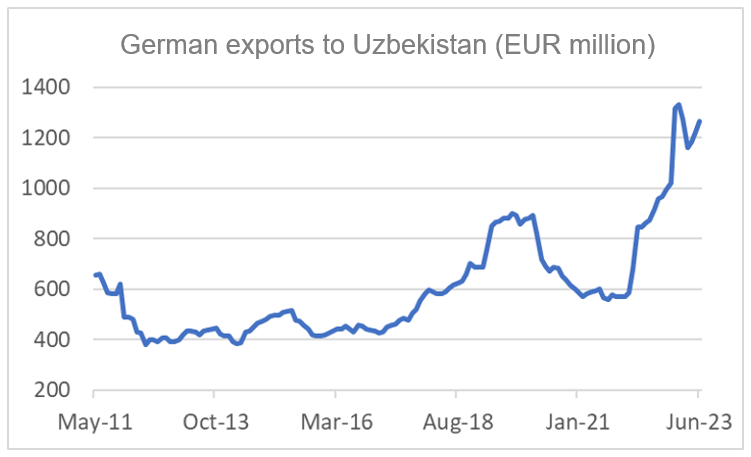
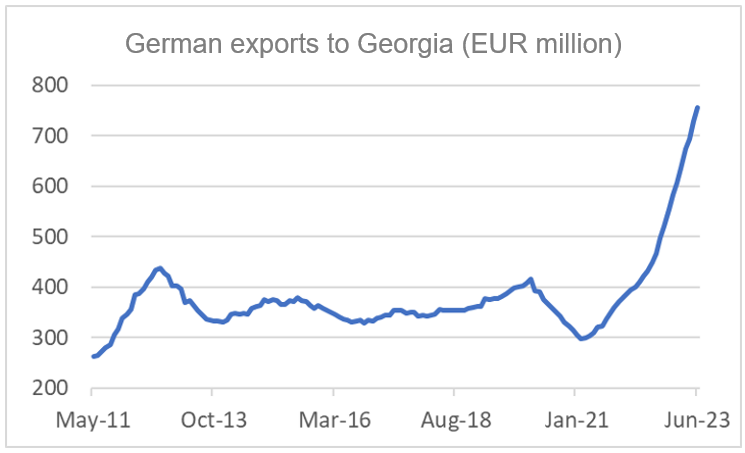
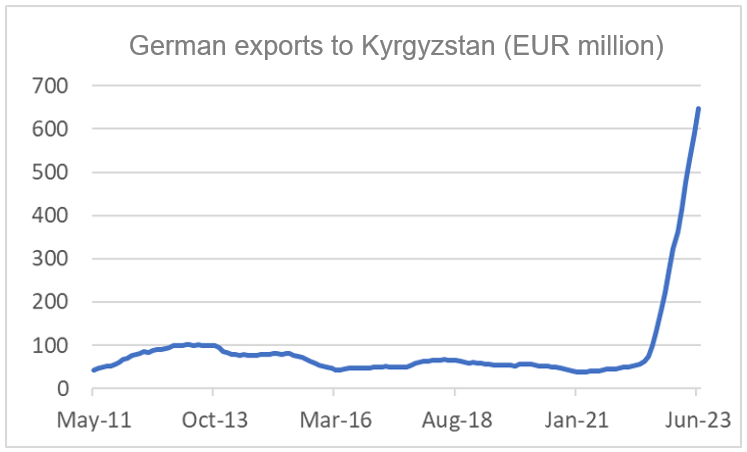
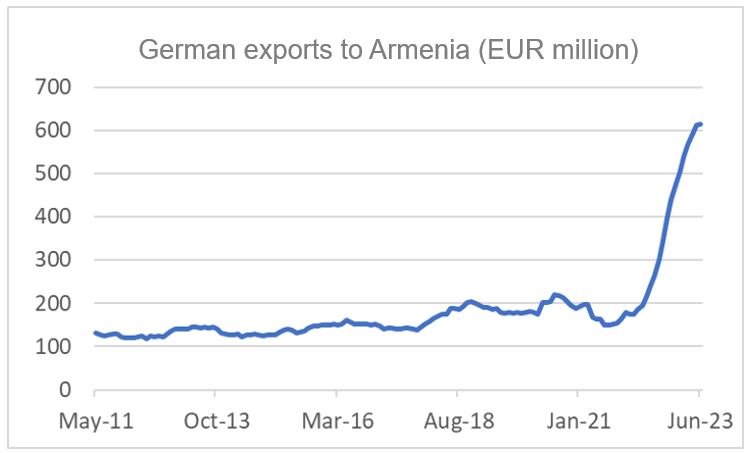
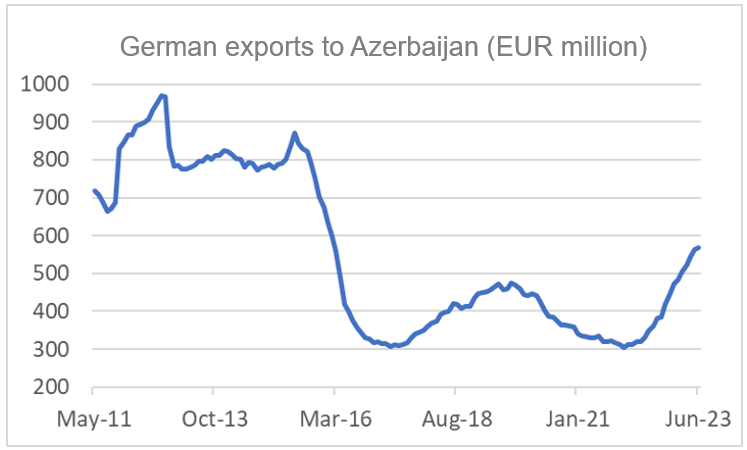
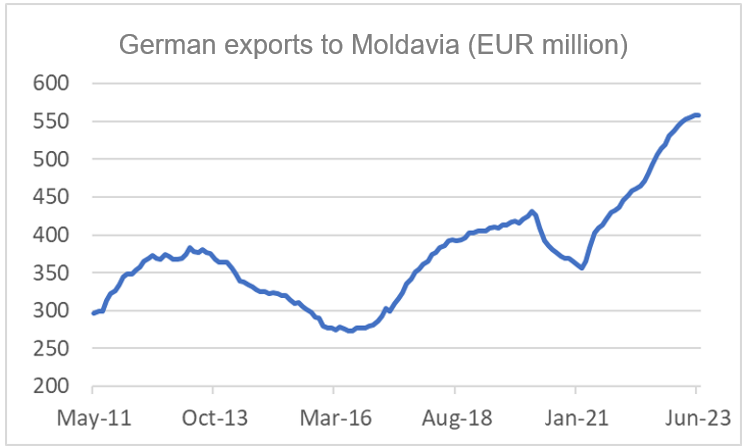
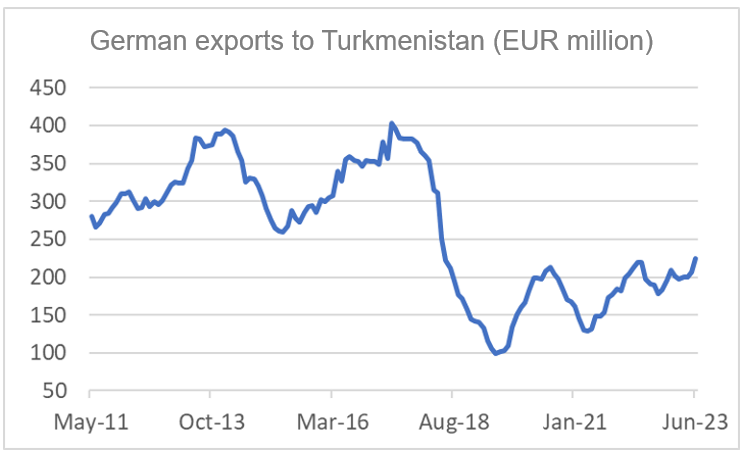
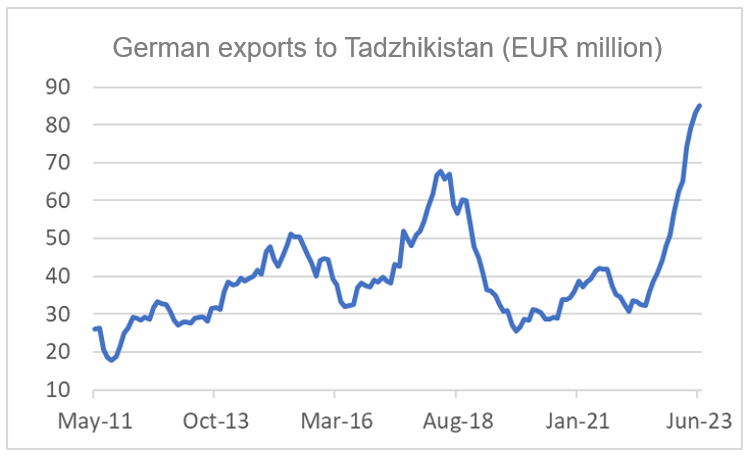
LINKS TO ORIGINAL ARTICLES:
Han DE JONG blog: Circumventing Sanctions – Just Some Pictures

